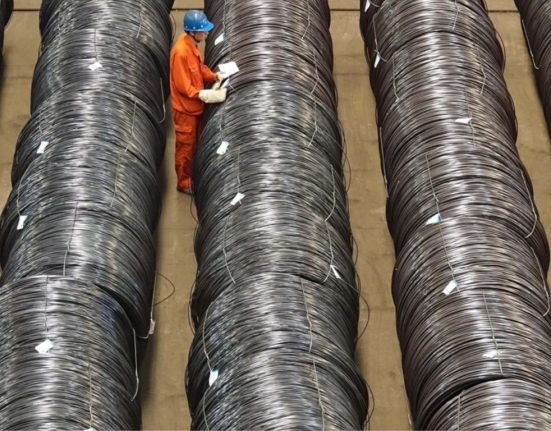Nigeria’s Senate has approved a request by President Muhammadu Buhari to restructure 23.7 trillion naira ($52 billion) in short-term loans due to the central bank to long-term debt, according to the minutes from a meeting held on Wednesday. The approval from the lower house of representatives was expected to follow in a sitting on Thursday, which would allow Buhari to sign the bill into law before leaving office this month after serving the maximum two terms.
This move is expected to have a significant impact on Nigeria’s economy, which has been struggling with high levels of debt and a weakened currency. The restructuring of the loans is aimed at reducing the burden on the government and making it easier for Nigeria to manage its debt.
The impact of loan restructuring on Nigeria’s economy
The decision to restructure short-term loans to long-term debt is expected to have a significant impact on Nigeria’s economy. Nigeria has been struggling with high levels of debt, which has put a strain on the country’s finances and weakened its currency. The restructuring of the loans is aimed at reducing the burden on the government and making it easier for Nigeria to manage its debt.
One of the major benefits of the loan restructuring is that it will give Nigeria more time to repay its debt. This will reduce the pressure on the government to make large debt repayments in the short term, which will help to stabilize the country’s finances. It will also free up more money for the government to spend on other areas, such as healthcare, education, and infrastructure development.
The loan restructuring will also help to improve Nigeria’s credit rating. By reducing the country’s debt burden, it will make Nigeria a more attractive destination for investors, which will help to stimulate economic growth. This, in turn, will create more jobs and increase prosperity for the people of Nigeria.
However, there are also potential risks associated with the loan restructuring. One of the main risks is that it could lead to a further depreciation of Nigeria’s currency. This is because the restructuring will involve a large amount of foreign currency, which will need to be repaid over a longer period of time. If the value of Nigeria’s currency continues to weaken, it could make it more difficult for the country to repay its debt.
Another potential risk is that the loan restructuring could lead to higher interest rates. This is because longer-term debt typically carries a higher interest rate than short-term debt. If interest rates rise, it could increase the cost of borrowing for the government and make it more difficult for Nigeria to manage its debt.
Conclusion
In conclusion, the decision by Nigeria’s Senate to approve the restructuring of short-term loans to long-term debt is a significant development for the country’s economy. It is expected to reduce the burden on the government and make it easier for Nigeria to manage its debt. However, there are also potential risks associated with the loan restructuring, including a further depreciation of Nigeria’s currency and higher interest rates. It will be important for the government to monitor these risks carefully and take steps to mitigate them as necessary.










